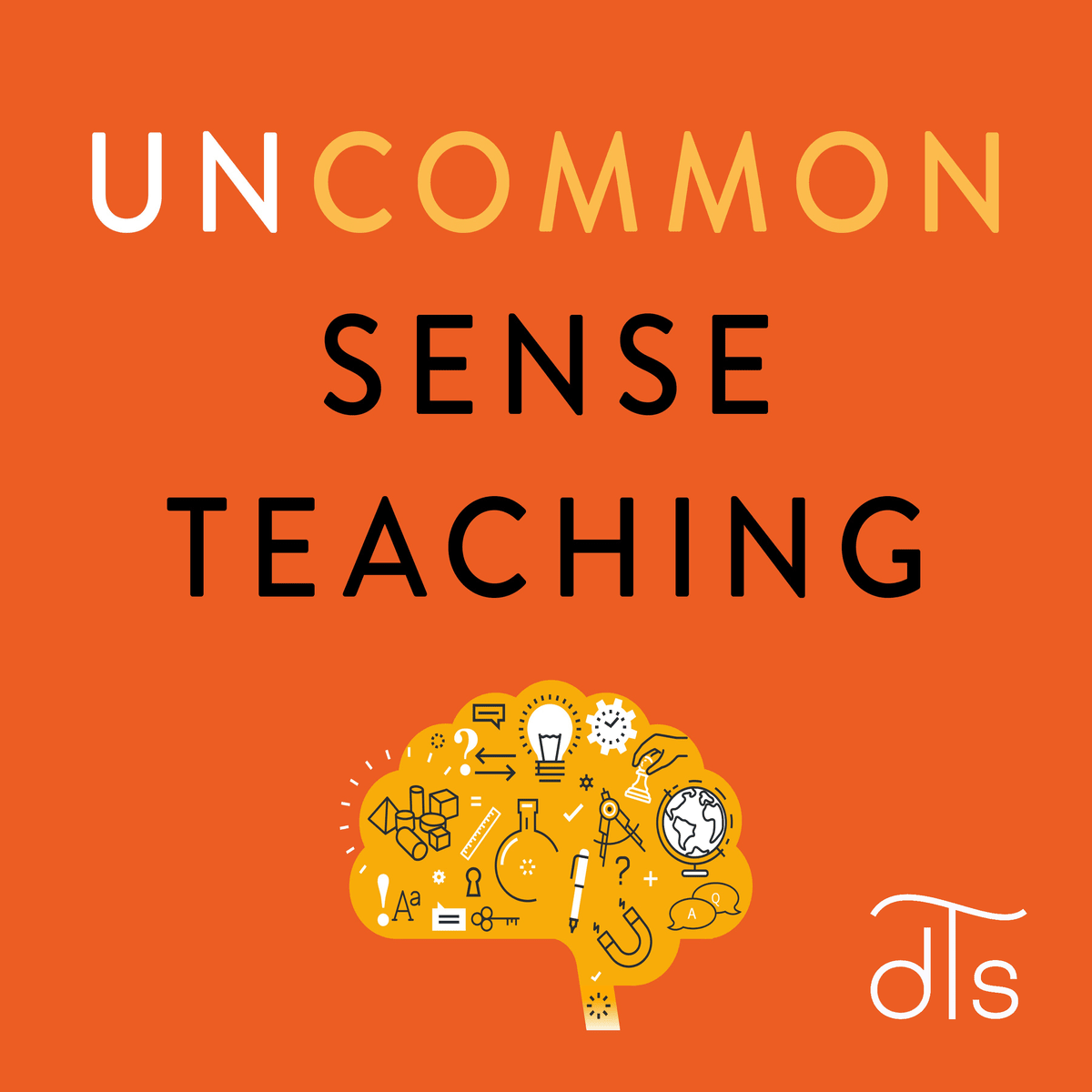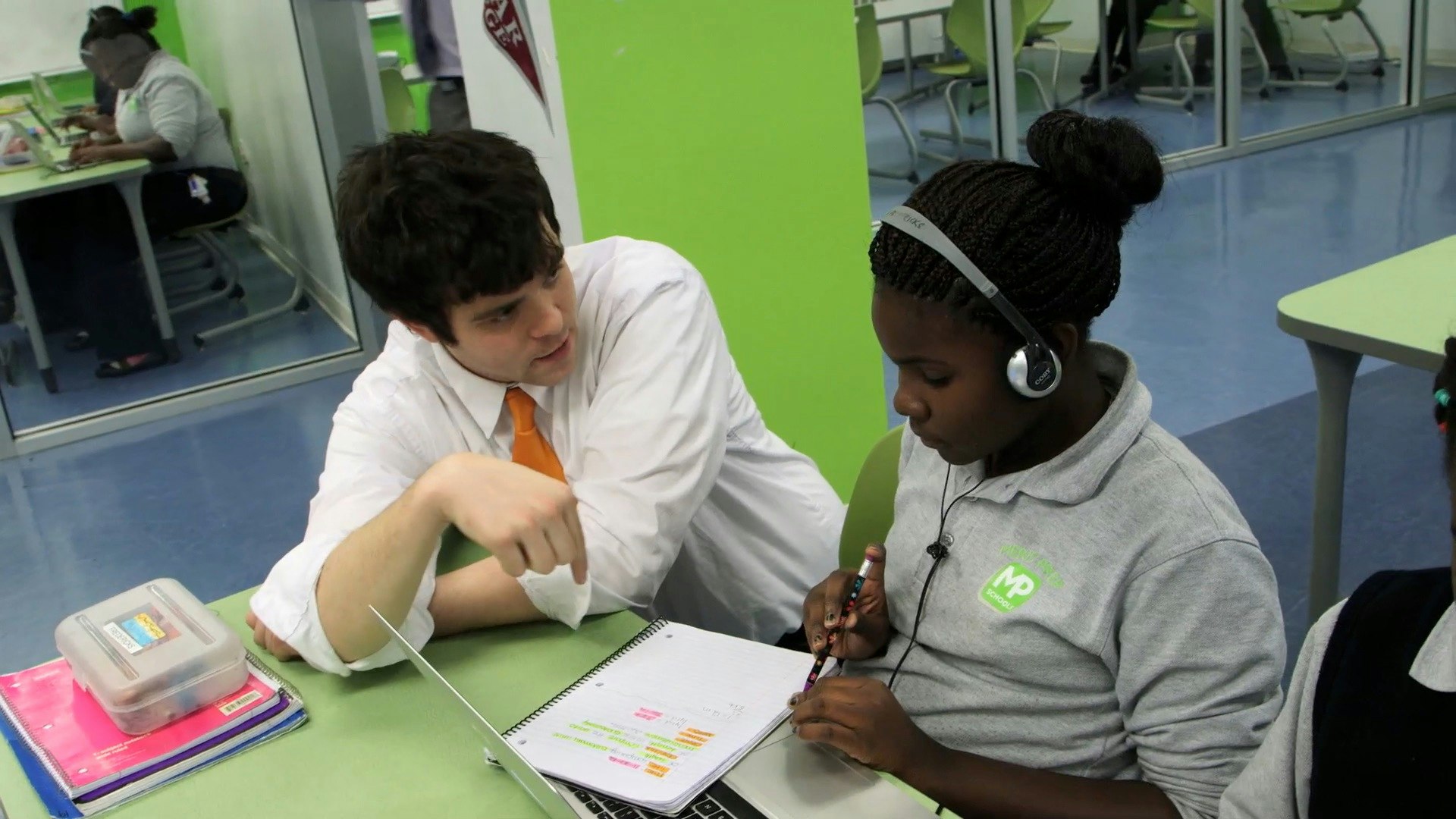School Administrator
vigating the Path to School Administrator: A Comprehensive Career Guide
A school administrator plays a pivotal role in shaping the educational landscape, ensuring the smooth operation of schools and fostering an environment where students and educators can thrive. These senior-level professionals are instrumental in the positive development of educational institutions, students, and communities, contributing to a well-educated society. The responsibilities are multifaceted, encompassing everything from daily operations and budget management to strategic planning and community engagement.
For those passionate about education and possess strong leadership qualities, a career as a school administrator can be incredibly rewarding. It offers the chance to influence educational policies, mentor staff, and create a lasting impact on the lives of students. The dynamic nature of the role means no two days are alike, presenting constant opportunities for problem-solving and innovation within the educational system. This career path is ideal for individuals who are committed to fostering high-quality education and are prepared to take on significant leadership responsibilities.
Introduction to School Administration
Understanding the role of a school administrator begins with recognizing its broad scope and essential function within any educational institution. Whether in a bustling elementary school or a large university, administrators are the organizational backbone, ensuring that daily operations align with overarching educational goals. This career is more than just managing; it's about leading with vision and purpose.
Defining the Role: What Does a School Administrator Do?
A School Administrator is a key leadership figure responsible for managing the administrative tasks within schools, colleges, or other educational settings. Their primary goal is to ensure the institution runs smoothly and efficiently, which involves overseeing facilities, managing staff, and coordinating various administrative processes. School administrators wear many hats, acting as planners, problem-solvers, educators, and counselors. They are crucial in shaping and upholding the school's vision and implementing actions that improve the institution and the quality of education.
The specific duties can vary based on the size and type of the educational institution. In smaller schools, an administrator might be more hands-on with daily operations, while in larger districts, they might oversee broader operational aspects as part of a larger administrative team, like a superintendent. Key responsibilities often include managing budgets, logistics, and events; handling scheduling and record-keeping; ensuring compliance with relevant laws and regulations; developing and running educational programs; and hiring, training, and advising staff. They also play a role in curriculum creation, student counseling, conflict resolution, and communication with parents, regulatory bodies, and the public.
For individuals exploring this career, it's helpful to understand that it's a demanding yet fulfilling role. The ability to communicate effectively with diverse groups of people, manage resources wisely, and maintain a commitment to high-quality education are essential.
Distinguishing School Administrators from Other Educational Roles
While teachers are at the forefront of delivering instruction, school administrators work behind the scenes and in leadership capacities to support the entire educational ecosystem. Unlike teachers, whose primary focus is classroom instruction and student learning, administrators manage the broader operational and strategic aspects of the school or district. This includes policy implementation, staff management, budget allocation, and ensuring the overall effectiveness of educational programs.
Other educational roles, such as school counselors or librarians, provide specialized support services to students and staff. School administrators, however, have a wider remit that encompasses the leadership and direction of the entire institution or specific departments within it. For instance, while a department head might focus on a specific academic area, a principal or dean oversees multiple departments and the overall functioning of their school.
Understanding these distinctions is important for anyone considering a career in educational leadership. While all roles within a school contribute to student success, the administrator's impact is often at an institutional level, shaping the environment in which teaching and learning occur.
Typical Work Environments: From K-12 to Higher Education
School administrators can be found in a variety of educational settings, each with its unique characteristics and demands. In K-12 public and private schools, administrators like principals and assistant principals are responsible for the day-to-day management of the school, student discipline, teacher evaluation, and parent communication. Their work is often fast-paced and requires direct interaction with students, teachers, and parents.
In higher education institutions such as colleges and universities, administrators may hold titles like dean, provost, registrar, or director of admissions. Their responsibilities can range from overseeing academic departments and faculty, managing student services like admissions and financial aid, to strategic planning and institutional development. The work environment in higher education often involves collaboration with faculty committees, managing larger budgets, and engaging with a diverse student body and external stakeholders.
Whether in a K-12 school or a university, school administrators typically work a 12-month year. During summer months, when student attendance may be lower, their focus might shift to tasks like hiring new staff, curriculum development, and facility maintenance. The choice of work environment will significantly influence the specific challenges and rewards of a school administrator's career.
Roles and Responsibilities of School Administrators
The position of a school administrator is multifaceted, requiring a blend of managerial acumen, leadership prowess, and a deep understanding of the educational landscape. Their duties span a wide array of critical functions necessary for the effective operation of an educational institution.
Daily Operational Leadership and Management
A significant portion of a school administrator's time is dedicated to overseeing the daily operations of the institution. This includes managing budgets, ensuring logistical needs are met, and coordinating school events or meetings. Administrators are responsible for scheduling, maintaining accurate records, and preparing reports that are often required by regulatory bodies or internal stakeholders. They must ensure that the school complies with all relevant laws and regulations, which can range from educational standards to safety protocols.
Financial management is a key operational task. Administrators are often involved in budget preparation, tracking expenditures, and ensuring that resources are allocated effectively to support educational programs and operational needs. This may involve making difficult decisions about prioritizing spending and finding cost-effective solutions. Furthermore, they manage school facilities, which can include overseeing maintenance, security, and the efficient use of physical spaces.
These introductory courses can provide a foundational understanding of organizational skills crucial for managing daily operations in an educational setting.
Strategic Leadership in Curriculum and Instruction
Beyond daily tasks, school administrators provide strategic leadership, particularly in the realm of curriculum development and instructional quality. They play a hand in the creation and implementation of the school's curriculum, ensuring it meets educational standards and the needs of the students. This involves staying abreast of current educational research and best practices to guide instructional strategies and program development.
Administrators are often responsible for evaluating teacher performance and providing professional development opportunities to enhance instructional effectiveness. They may observe classrooms, provide feedback to teachers, and identify areas for improvement in teaching methodologies. A core part of their strategic role is to implement actions that improve the school and the quality of education, which might involve initiatives like building renovations, introducing new student guidelines, or incorporating new subjects into the curriculum.
For those interested in the strategic aspects of education, the following courses delve into educational innovation and improvement, which are key areas for administrative leadership.
These books offer insights into how people learn and how to lead change effectively within educational settings, which are crucial for strategic curriculum development.
Fostering Community Engagement and Managing Stakeholder Relations
Effective school administrators understand the importance of building and maintaining strong relationships with various stakeholders. This includes communicating with parents, regulatory bodies, the public, and other educational institutions. They act as a vital link between the school and the wider community, often representing the school at public events and forums.
Engaging parents in their children's education is a key aspect of this role. Administrators work to establish and maintain good relationships with parents, addressing their concerns and involving them in school activities and decision-making processes where appropriate. They also collaborate with community partners and organizations to enhance educational opportunities and resources for students. Managing these relationships effectively contributes to a positive school culture and a supportive environment for learning.
Understanding diverse cultures and fostering inclusive environments are critical for community engagement. These courses can help develop those competencies.
Navigating Crisis Situations and Resolving Conflicts
School administrators must be prepared to handle crises and resolve conflicts as they arise. This can range from managing student disciplinary issues to addressing emergencies or significant disruptions to the school environment. Effective conflict resolution skills are essential for mediating disputes between students, staff, or parents, and for fostering a safe and orderly school atmosphere.
Crisis management planning and execution are also part of their responsibilities. Administrators need to develop and implement procedures to ensure the safety and well-being of students and staff during emergencies. This requires clear thinking under pressure, decisive action, and effective communication with all affected parties. Their ability to navigate these challenging situations is crucial for maintaining stability and trust within the school community.
The ability to remain resilient and manage stress is vital in crisis situations. These courses touch upon resilience and emotional management, valuable for any leadership role.
Understanding trauma and its impact on students is increasingly important for administrators. This book provides valuable insights into trauma-informed practices.
Career Progression in School Administration
The path of a school administrator often begins with experience in the classroom and unfolds through various leadership roles, each with increasing responsibility and scope. Understanding this progression can help aspiring administrators plan their careers and identify opportunities for growth.
Beginning the Journey: Entry-Level Administrative Roles
Most individuals aspiring to K-12 school administration start their careers as teachers. After gaining several years of classroom experience and typically a master's degree, educators may move into entry-level administrative positions. These roles can include positions like department chairs, instructional coordinators, or assistant principals. As an assistant principal, one might be responsible for student discipline, attendance, coordinating school activities, and supporting the principal in daily operations.
In the higher education sector, entry-level administrative roles might be found in departments such as admissions, registrar's office, or student affairs. Individuals in these positions gain experience in specific administrative functions before potentially moving into broader leadership roles. These initial positions provide a crucial foundation in understanding the operational intricacies of an educational institution.For those beginning their journey, courses focusing on foundational teaching and learning principles can be beneficial, even if aiming for administrative roles, as they provide context for the educational environment they will manage.
Advancing Through Mid-Career Pathways
With experience and a proven track record in an entry-level administrative role, individuals can advance to more senior positions. In K-12 settings, an assistant principal might become a principal, taking on full responsibility for managing a school. Principals oversee all aspects of their school, from academic programs and staff management to budget and community relations. Their leadership is critical to creating a positive school culture and ensuring student success.
In higher education, mid-career administrators might progress to roles such as department deans or directors of larger administrative units. These positions involve more significant strategic planning, budget oversight, and leadership responsibilities within their specific area of the institution. Continuous professional development and often advanced degrees, such as a doctorate, can be instrumental in achieving these mid-career advancements.Mid-career professionals might find courses on leadership, change management, and evidence-based education policies useful for their advancement.
Reaching Senior Leadership: Superintendents, Deans, and Beyond
At the pinnacle of school administration are senior leadership roles that involve system-wide or institution-wide responsibilities. In K-12, experienced principals may aspire to become a superintendent of schools, overseeing an entire school district. Superintendents work closely with the school board, set district-wide policies, manage large budgets, and are the public face of the school system.
In higher education, senior roles include positions like provost (chief academic officer) or president of a college or university. These roles often require a doctoral degree and extensive experience in academic and administrative leadership. Deans in higher education typically oversee specific colleges or schools within a university. Salary expectations generally increase with experience and level of responsibility. According to May 2023 data from the U.S. Bureau of Labor Statistics (BLS), the median annual salary for education administrators in kindergarten through secondary schools was $103,460. Postsecondary education administrators had a median annual salary of $102,610. For example, starting salaries for principals in Texas can begin around $60,000, with senior-level principals earning between $99,000 and $118,000 annually. It's important to note that salaries can vary significantly by region, institution type, and the specific role.Exploring Education-Adjacent Transition Opportunities
Experience as a school administrator opens doors to various education-adjacent fields. The leadership, management, and policy skills developed are highly transferable. Some administrators may transition into roles in educational consulting, working with schools or districts to improve performance. Others might move into policy work for government agencies, non-profit organizations, or think tanks focused on education.
There are also opportunities in companies that develop educational products and services, such as EdTech firms. Curriculum development is another area where former administrators can leverage their expertise. Some may also choose to pursue roles in museum education or other community-based educational programs. The breadth of experience gained as a school administrator provides a solid foundation for a variety of impactful careers within and beyond traditional educational institutions.
For individuals considering transitions, understanding educational reform and broader educational psychology can be beneficial.
These books delve into educational reform and the psychological underpinnings of education, useful for those looking to transition into policy or consulting roles.
Formal Education Pathways
A career in school administration typically requires a strong educational foundation, often culminating in advanced degrees and specialized certifications. Understanding these educational pathways is crucial for anyone aspiring to leadership roles in education.
Foundational Undergraduate Degree Requirements
The journey towards becoming a school administrator usually begins with a bachelor's degree. For those intending to work in K-12 education, this degree is often in education or a specific subject area they plan to teach. This foundational degree provides the necessary content knowledge and pedagogical understanding to become a licensed teacher, which is often a prerequisite for administrative roles in schools.
For individuals aiming for administrative positions in higher education, a bachelor's degree in a variety of fields can be a starting point, though fields like education, business administration, or public administration can be particularly relevant. While some entry-level administrative positions in smaller colleges might be accessible with a bachelor's degree, most advanced roles will require further education. Regardless of the specific major, a bachelor's degree establishes the initial academic credentials needed for the profession.
The Importance of Graduate Programs (M.Ed., Ed.D., Ph.D.)
A graduate degree is almost always necessary to qualify for a school administrator position. The most common advanced degrees include a Master of Education (M.Ed.) in Educational Leadership or School Administration. These programs are designed to equip experienced teachers and aspiring administrators with the skills and knowledge needed for leadership roles, often combining classroom learning with practical, hands-on experience. Coursework typically covers areas like school law, finance, curriculum development, personnel management, and educational policy.
For those seeking senior leadership positions, particularly in K-12 (like superintendents) or in higher education (like deans or provosts), a doctoral degree such as a Doctor of Education (Ed.D.) or a Doctor of Philosophy (Ph.D.) in education is often required or highly preferred. An Ed.D. is often practice-focused, preparing leaders for complex challenges in educational settings, while a Ph.D. is typically more research-oriented. Some states also offer an Educational Specialist (Ed.S.) degree program as an option for educators who have already earned a master's degree and are seeking further specialization in school leadership.
Aspiring administrators can benefit from understanding teaching methodologies and learning theories. The following courses provide a solid grounding in these areas, essential for effective educational leadership.
These books offer foundational knowledge in learning theories and educational psychology, crucial for anyone pursuing graduate studies in education administration.
Navigating State-Specific Certification and Licensing
For administrators in public K-12 schools (such as principals and assistant principals), state-issued certification or licensure is typically mandatory. The requirements for these licenses vary significantly from state to state but generally include a master's degree in educational administration or leadership, a certain number of years of teaching experience, and passing state-administered exams. For example, North Carolina requires principals to have completed an approved master's level program in school administration. Similarly, Arizona requires principals to hold a master's degree, complete an educational administration program with specific coursework, have teaching experience and certification, and potentially an ESL or Bilingual Education endorsement.
Prospective administrators must carefully research the specific requirements of the state in which they intend to work. This may involve specific coursework, practicum hours, or passing assessments like the School Leaders Licensure Assessment (SLLA) Praxis Assessment. Some states may offer provisional licenses for individuals who are in the process of completing their requirements, particularly for roles like assistant principal if there's a shortage of fully licensed candidates. Postsecondary administrators in colleges and universities generally do not require state licensure.
The Role of Internships and Administrative Residencies
Practical experience is a cornerstone of preparing for a school administration career. Many graduate programs in educational leadership include internships, practicums, or administrative residencies as part of their curriculum. These experiences allow aspiring administrators to apply their academic learning in real-world school settings under the guidance of experienced mentors.
During an internship or residency, candidates might shadow current administrators, participate in administrative meetings, assist with operational tasks, and take on leadership responsibilities for specific projects. This hands-on experience is invaluable for developing practical skills, understanding the complexities of school management, and building a professional network. Some states may have specific requirements for the duration and nature of these field experiences as part of the licensure process. These practical components bridge the gap between theory and practice, ensuring that new administrators are well-prepared for the challenges of their roles.
While not direct administrative internships, courses involving capstone projects or practice teaching can offer valuable experiential learning that simulates some aspects of leadership and project management.
Skill Development for School Administrators
A successful career in school administration hinges on a diverse set of skills. These range from the interpersonal abilities needed to lead and connect with people, to the technical competencies required to manage complex systems and data. Continuous development of these skills is key to effective leadership in education.
Cultivating Essential Soft Skills: Communication and Empathy
Strong communication skills, both written and verbal, are paramount for school administrators. They must effectively convey information, policies, and vision to diverse audiences including students, teachers, parents, and community members. This includes active listening, public speaking, and the ability to engage in difficult conversations with clarity and respect.
Empathy is another critical soft skill. Understanding and responding to the needs and perspectives of students, staff, and families is crucial for building trust and fostering a positive school climate. Administrators who can empathize with the challenges faced by their school community are better equipped to provide support, resolve conflicts, and make decisions that are perceived as fair and considerate. These interpersonal skills are the bedrock upon which effective leadership is built.
Developing strong interpersonal skills is crucial for administrators. The following courses focus on relationship building and managing emotions, which are key components of effective communication and empathy in a leadership role.
These books offer practical advice on discipline and classroom management, which often require strong communication and empathetic approaches.
Acquiring Technical Skills: Data Analysis and Education Law
School administrators increasingly rely on data analysis to inform decision-making. This involves collecting, interpreting, and using data related to student performance, attendance, budget, and other operational aspects to identify trends, assess program effectiveness, and guide strategic planning. Proficiency in using data management systems and analytical tools is becoming essential.
A solid understanding of education law and policy is also critical. Administrators must ensure their schools comply with local, state, and federal regulations covering a wide range of issues, from student rights and special education to employment practices and school finance. Staying current with legal requirements and their implications for school operations is an ongoing responsibility.
Understanding how to work with data and apply evidence-based practices are key technical skills for modern administrators. These courses offer insights into using data in education.
Embracing Leadership Training Methodologies
Effective leadership in school administration often involves specific methodologies and approaches. Many administrators pursue ongoing professional development and leadership training to hone their skills. This can include learning about different leadership styles, change management strategies, and techniques for building effective teams. [6ookd9]
Some leadership training focuses on instructional leadership, equipping administrators to guide and support teachers in improving classroom practice. Others might emphasize transformational leadership, focusing on inspiring and motivating staff to achieve a shared vision. Understanding and applying these methodologies can significantly enhance an administrator's ability to lead their institution effectively and drive positive change.
These books explore various facets of leadership and teaching excellence, providing valuable frameworks for administrators seeking to develop their leadership style.
Integrating Technology into Modern Administration
Technology plays an increasingly vital role in modern school administration. Administrators need to be proficient in using a variety of technological tools for communication, data management, financial administration, and instructional support. This includes familiarity with student information systems (SIS), learning management systems (LMS), and other administrative software.
Beyond basic proficiency, administrators should also lead the strategic integration of technology to enhance teaching and learning. This might involve evaluating new educational technologies, providing training for staff, and developing policies for the responsible use of technology in schools. As artificial intelligence (AI) and other emerging technologies continue to evolve, administrators will need to stay informed about their potential applications and implications for education. The ability to leverage technology effectively is a hallmark of a forward-thinking school administrator. OpenCourser provides an extensive catalog of courses on various software tools and technology topics.
These courses explore the use of various technologies in education, from learning management systems to AI, which are increasingly important for administrators to understand and implement.
Challenges in School Administration
The role of a school administrator, while rewarding, comes with a significant set of challenges. Navigating these hurdles requires resilience, strategic thinking, and a steadfast commitment to the well-being of students and staff. Understanding these challenges can help prospective administrators prepare for the realities of the profession.
The Tightrope Walk: Balancing Educational Ideals with Budgetary Realities
One of the most persistent challenges for school administrators is managing limited budgets while striving to provide high-quality education. Schools often face underfunding, forcing administrators to make difficult decisions about resource allocation. This can mean prioritizing certain programs over others, finding creative ways to stretch resources, and constantly seeking additional funding through grants or fundraising efforts.
The pressure to meet academic standards and provide comprehensive support services for students often clashes with financial constraints. Administrators must be adept at financial planning, transparent in their budgeting processes, and skilled at advocating for the resources their schools need. This balancing act requires both fiscal responsibility and a strong commitment to educational excellence.
Understanding financial management and resource allocation is crucial for administrators. This course, though focused on public libraries, covers budgeting principles applicable to educational institutions.
Championing Equity and Inclusion in Diverse School Communities
Addressing issues of equity and inclusion is a critical and ongoing challenge for school administrators. Ensuring that all students, regardless of their background, abilities, or circumstances, have an equal opportunity to succeed requires intentional effort and systemic change. This involves creating a welcoming and supportive school culture for diverse student populations and staff.
Administrators must lead efforts to identify and dismantle barriers to equity, which might include biased policies, inequitable resource distribution, or a lack of culturally responsive teaching practices. [1k1ma1] This work can be complex and may involve navigating sensitive conversations and challenging existing norms. A deep commitment to social justice and the ability to foster an inclusive environment are essential for administrators in today's diverse schools.
Courses focusing on intercultural competence and equity in education are vital for administrators striving to create inclusive learning environments.
These books offer valuable perspectives on culturally responsive teaching and coaching for equity, essential reads for administrators committed to these principles.
Navigating the Political Landscape of Education
School administrators often operate within a complex political environment. They must navigate the expectations and demands of various stakeholders, including school boards, local and state government officials, teacher unions, parents, and community groups. These groups may have conflicting interests or agendas, requiring administrators to be skilled negotiators and diplomats.
Decisions about curriculum, school funding, and educational policies can become highly politicized. Administrators must be able to advocate for their schools and students while maintaining positive working relationships with all parties. This requires political astuteness, strong communication skills, and the ability to build consensus around common goals. The external pressures from the political landscape can add a significant layer of complexity to the administrator's role.
The Toll of the Role: Burnout Rates and Stress Management
The demanding nature of school administration can lead to high levels of stress and burnout. Administrators often work long hours, face constant pressure to improve performance, and deal with a wide range of challenging situations. Recent data indicates that a significant percentage of principals experience frequent job-related stress and burnout, sometimes at higher rates than teachers or other working adults. A survey by the RAND Corporation found that 85% of principals reported frequent job-related stress, and 48% said they were burned out.
Sources of stress can include staffing shortages, supporting the mental health of students and staff, addressing learning gaps, and implementing new policies or initiatives. Effective stress management strategies and a focus on work-life balance are crucial for administrators to maintain their own well-being and effectiveness. Recognizing the signs of burnout and seeking support when needed is vital for long-term sustainability in this challenging but rewarding profession.
Learning to manage emotions and build resilience are key to combating burnout. These courses provide strategies for emotional well-being and coping with stress.
School Administrator Impact on Educational Trends
School administrators are not just managers; they are key influencers and shapers of educational trends. Their leadership and decisions play a significant role in how schools adapt to new challenges, adopt innovative practices, and ultimately, how students learn.
Guiding Reforms in Standardized Testing and Assessment
School administrators often find themselves at the forefront of discussions and implementations regarding standardized testing and assessment reforms. They are responsible for ensuring their schools comply with state and federal testing mandates while also working to make assessment practices meaningful for students and teachers. This can involve advocating for more balanced assessment systems that include formative and performance-based measures, rather than relying solely on high-stakes standardized tests. [gqwcui]
Administrators play a role in interpreting assessment data to identify areas for school improvement and to support teachers in using data to inform their instruction. As debates around the efficacy and equity of standardized testing continue, administrators are crucial in navigating these changes and leading their schools towards assessment practices that genuinely support student learning and growth.
Understanding performance assessment and how to use data effectively are critical skills for administrators involved in testing reforms. These courses provide insights into these areas.
Spearheading the Adoption of Emerging Technologies like AI in Education
The integration of emerging technologies, particularly Artificial Intelligence (AI), is a significant trend in education, and school administrators are pivotal in spearheading this adoption. AI offers potential benefits for streamlining administrative tasks such as scheduling, attendance tracking, and even initial stages of grading, freeing up educators' time. AI can also assist in analyzing large volumes of student data to identify learning patterns and personalize learning experiences.
Administrators are responsible for evaluating the potential of AI tools, ensuring ethical implementation (addressing concerns like data privacy and algorithmic bias), and providing the necessary training and support for staff. They lead the charge in creating environments where technology enhances, rather than complicates, the educational process. According to insights from The Access Group, AI's ability to automate tasks can significantly improve efficiency, allowing more resources to be directed towards students. Similarly, Jenzabar highlights AI's role in revolutionizing campus operations and personalizing the educational journey.
These courses explore the use of AI and other technologies in education, which are becoming increasingly important for administrators to understand and leverage.
Shaping Innovative Post-Pandemic Learning Models
The COVID-19 pandemic accelerated changes in how education is delivered, and school administrators are now at the forefront of shaping innovative and resilient post-pandemic learning models. This includes the continued development and refinement of hybrid learning environments, which blend in-person and online instruction. Administrators are tasked with ensuring that these models are equitable, engaging, and effective for all students.
This involves addressing the digital divide, providing ongoing professional development for teachers in online and blended instruction, and rethinking traditional school schedules and structures. [7, fagysp] They also play a key role in supporting student and staff well-being as schools navigate the long-term impacts of the pandemic. Their leadership is crucial in building more flexible and adaptable educational systems for the future.
Understanding blended learning and resilient teaching strategies is essential for shaping post-pandemic education. These courses offer relevant insights.
Driving Data-Driven Decision-Making in Schools
There is a growing emphasis on using data to inform decisions at all levels of education, and school administrators are key drivers of this trend. They are responsible for establishing systems and processes for collecting, analyzing, and interpreting various types of data, including student academic performance, attendance, disciplinary incidents, and school climate surveys. This information is then used to identify areas of strength and weakness, allocate resources effectively, tailor interventions for students, and evaluate the impact of school programs and initiatives.
Administrators foster a data-literate culture within their schools, empowering teachers and staff to use data to improve their practice. This involves providing training on data analysis tools and techniques, as well as creating opportunities for collaborative data discussions. By championing data-driven decision-making, administrators help ensure that school improvement efforts are targeted, evidence-based, and ultimately more effective in enhancing student outcomes.
These courses focus on using data and evidence to inform educational practices and policies, directly aligning with the trend of data-driven decision-making.
Global Perspectives on School Administration
As the world becomes increasingly interconnected, understanding school administration from a global perspective is more important than ever. Educational systems and leadership approaches vary significantly across countries, influenced by cultural, historical, and socio-economic factors. Exploring these differences can provide valuable insights for administrators and aspiring leaders.
Comparative Insights: Administrative Structures Worldwide
The structure of school administration differs considerably around the globe. Some countries have highly centralized education systems where national ministries dictate curriculum, funding, and policy with limited autonomy for local administrators. Other nations feature more decentralized systems, granting significant decision-making power to regional authorities or individual schools. For example, the level of principal autonomy in hiring staff, managing budgets, and shaping curriculum can vary widely.
Comparing these different administrative models offers a richer understanding of the strengths and weaknesses inherent in various approaches. It allows educators to see how different structures impact school effectiveness, teacher morale, and student outcomes. This comparative lens can inspire innovative thinking about how to organize and lead schools in one's own context.
International Certification and Reciprocity Across Borders
For school administrators considering international careers, understanding certification and licensure reciprocity is crucial. While teaching qualifications sometimes have pathways for international recognition, administrative credentials can be more complex. Some countries may require specific national qualifications or examinations for administrative roles, regardless of prior experience or certification from another country.
International schools often have their own hiring criteria and may recognize qualifications from a broader range of countries, particularly if they follow an international curriculum (like the International Baccalaureate). However, working in public school systems abroad usually necessitates meeting the host country's specific certification standards. Researching these requirements thoroughly is essential for anyone seeking administrative positions outside their home country.
These courses can broaden understanding of international education contexts, which is valuable for administrators interested in global perspectives or working in diverse international school environments.
The Imperative of Cultural Competency in Global Education
Cultural competency is a vital skill for school administrators, especially those working in diverse international settings or in schools with multicultural student populations. [455jxk] This involves understanding and respecting different cultural norms, communication styles, and perspectives on education. Administrators must be able to create inclusive school environments where all students, parents, and staff feel valued and respected.
Developing cultural competency requires ongoing learning, self-reflection, and a willingness to adapt leadership approaches to suit different cultural contexts. This might involve learning about the specific cultures represented in the school community, incorporating culturally relevant pedagogy, and ensuring that school policies and practices are equitable and sensitive to cultural differences. In an increasingly globalized world, the ability to lead effectively across cultures is a significant asset.
This course specifically addresses the development of intercultural competence in an educational setting, a core skill for administrators in a globalized world.
This book, while focused on teaching, provides insights into creating culturally responsive environments, which is highly relevant for administrators.
Aligning with UN Sustainable Development Goals in Education
The United Nations Sustainable Development Goals (SDGs), particularly SDG 4 which aims to "ensure inclusive and equitable quality education and promote lifelong learning opportunities for all," provide a global framework that can inform the work of school administrators. Administrators can play a role in advancing these goals by promoting equitable access to education, improving learning outcomes, fostering safe and inclusive learning environments, and supporting teacher development.
Aligning school policies and practices with the SDGs can involve initiatives such as reducing achievement gaps, promoting gender equality in education, integrating education for sustainable development into the curriculum, and ensuring that schools are welcoming spaces for students with disabilities and those from marginalized communities. By connecting their work to these global goals, administrators can contribute to a broader movement for educational improvement worldwide.
This course on equity and inclusion directly relates to achieving UN SDG 4 by focusing on creating fair and accessible education for all learners.
Frequently Asked Questions (Career Focus)
Embarking on a career as a school administrator involves careful consideration of various practical aspects, from earning potential to the day-to-day realities of the job. Addressing these common questions can help provide clarity for those exploring this path.
What are the typical starting salary ranges for school administrators by region?
The median annual salary for education administrators in kindergarten through secondary schools in the United States was $103,460 as of May 2023. For postsecondary education administrators, the median annual salary was $102,610. Salaries can vary significantly by region, the type of institution (public vs. private, K-12 vs. higher education), level of experience, and the specific role. For example, in Texas, a state with a high number of K-12 education administrators, starting salaries for principals can be around $60,000, while senior-level principals might earn between $99,000 and $118,000 annually. Metropolitan areas often offer higher salaries than rural areas. The U.S. Bureau of Labor Statistics provides detailed occupational employment and wage estimates that can be explored by state and metropolitan area through their Occupational Employment and Wage Statistics (OEWS) program.
How long does it typically take to be promoted to a leadership role like principal or dean?
The timeframe for promotion to a leadership role such as a principal or dean varies based on several factors, including individual experience, educational qualifications, and opportunities within a specific school system or institution. Generally, becoming a principal in a K-12 setting requires several years of teaching experience (often 2-5 years or more) followed by obtaining a master's degree in educational administration or leadership. Some individuals may serve as an assistant principal for a few years before becoming a principal. So, the journey from starting as a teacher to becoming a principal could take anywhere from 5 to 10 years or more.
In higher education, pathways to roles like a dean can also be lengthy. These positions often require a doctoral degree and significant experience in teaching, research, and academic administration. Individuals might progress through faculty ranks, chair departments, and then move into associate dean or similar roles before becoming a dean. This progression can easily take 10-15 years or longer. It's important to remember these are general estimates, and individual career trajectories can differ significantly.
What are some of the most challenging versus the most rewarding aspects of being a school administrator?
School administrators often face significant challenges, including managing limited budgets, addressing teacher shortages, ensuring student safety and well-being (including mental health), and navigating political pressures. Balancing the diverse needs and expectations of students, parents, staff, and the community can be demanding. High levels of stress and the risk of burnout are also notable challenges.
Despite the difficulties, the role offers profound rewards. Many administrators find deep satisfaction in making a positive impact on the lives of students and fostering a supportive learning environment. The opportunity to lead and mentor staff, shape educational programs, and see students succeed can be incredibly fulfilling. Contributing to the overall improvement of the school and the broader community is a key motivator for many in this field.
Are there remote work possibilities in school administration?
Traditionally, school administration roles, especially in K-12 settings like principals and assistant principals, require a significant on-site presence to manage daily operations, interact with students and staff, and oversee school events. However, the pandemic accelerated the adoption of remote work tools and practices in education. While fully remote K-12 administrative positions are uncommon for building-level leadership, some district-level roles or positions in virtual/online schools may offer more flexibility or be entirely remote.
In higher education, there might be more possibilities for remote or hybrid work arrangements, particularly for certain administrative functions that do not require constant face-to-face interaction, such as some roles in online program management, instructional design, or certain types of institutional research or policy analysis. The prevalence of remote work will likely continue to evolve, but hands-on leadership and community engagement often necessitate an in-person presence for many administrative roles.
What are the demand projections for school administrators over the next decade?
According to the U.S. Bureau of Labor Statistics (BLS), the employment of postsecondary education administrators is projected to grow by about 3 percent between 2023 and 2033, which is about as fast as the average for all occupations. This is expected to result in about 15,200 job openings each year, mainly due to growth and the need to replace administrators leaving the field.
For elementary, middle, and high school principals, employment is projected to decline by 1 percent from 2023 to 2033. However, despite this slight decline, the BLS projects about 20,800 openings each year on average over the decade. These openings will primarily arise from the need to replace workers who retire or transition to other occupations. The National Association for Secondary School Principals had previously predicted growth in demand due to population increases, though current BLS data indicates a slight overall decline in the number of positions, offset by replacement needs.
What is the typical process for transitioning from a teaching role to an administrative role?
The transition from teaching to administration is a common career path in education. It typically begins with gaining several years of successful classroom teaching experience. During this time, aspiring administrators often take on teacher leadership roles, such as mentoring new teachers, leading committees, or coordinating school programs, to develop their leadership skills.
The next formal step usually involves pursuing a master's degree in educational leadership, school administration, or a related field. This graduate education provides specialized knowledge in areas like school law, finance, curriculum development, and supervision. Concurrently or subsequently, individuals will need to meet state licensure or certification requirements for administrative positions, which often include passing exams and completing an internship or practicum. Networking with current administrators and seeking mentorship can also be invaluable during this transition. Once qualified, teachers can apply for entry-level administrative positions such as assistant principal or instructional coordinator. The transition can be a significant shift in perspective and responsibilities, moving from a direct focus on students in a classroom to a broader focus on the entire school community.
The Future Landscape of School Administration
The field of educational administration is continuously evolving, shaped by societal changes, technological advancements, and new understandings of teaching and learning. Administrators must be forward-thinking and adaptable to navigate this changing landscape effectively.
Embracing Technological Advancements
Technology, particularly Artificial Intelligence (AI), is poised to reshape many aspects of school administration. AI can automate routine administrative tasks like scheduling and data entry, freeing up administrators to focus on more strategic initiatives. AI-powered analytics can provide deeper insights into student performance and school operations, enabling more data-informed decision-making. Administrators will need to become adept at evaluating, implementing, and managing these new technologies ethically and effectively. For instance, AI can help in personalizing learning paths for students and streamlining communication with parents. You can explore courses related to Artificial Intelligence and its applications in education on OpenCourser.
Focus on Mental Health and Well-being
There is a growing recognition of the importance of mental health and well-being for both students and staff. School administrators will play an increasingly critical role in creating supportive school environments that prioritize mental health. This includes implementing programs and services to support student emotional well-being, as well as fostering a culture that supports the mental health of teachers and other staff members, who themselves face high levels of stress. This trend requires administrators to be knowledgeable about mental health issues and effective intervention strategies.
Personalized Learning and Competency-Based Education
The move towards more personalized learning paths and competency-based education is another significant trend. Administrators will lead efforts to shift away from one-size-fits-all educational models towards approaches that cater to individual student needs, paces, and learning styles. This may involve leveraging technology for differentiation, redesigning curriculum and assessment, and providing teachers with the professional development needed to implement these approaches effectively. More information on personal development in education can be found by browsing courses on OpenCourser.
Lifelong Learning and Adaptability
The pace of change in education and the broader world necessitates a commitment to lifelong learning and adaptability on the part of school administrators. They must continuously update their knowledge and skills related to educational best practices, leadership strategies, technological advancements, and societal trends. This commitment to ongoing professional growth will be essential for leading schools effectively in an increasingly complex and dynamic future.
Embarking on Your Journey
Choosing a career as a school administrator is a significant decision, one that offers the opportunity to make a profound difference in the world of education. It's a path that demands dedication, continuous learning, and a genuine passion for fostering student success and empowering educators. While the challenges are real, the rewards of leading a school community, shaping young minds, and contributing to a more educated society are immeasurable.
If you are considering this path, remember that your journey will be unique. Embrace the learning process, seek out mentors, and build a strong foundation of skills and knowledge. Resources like OpenCourser can be invaluable in finding online courses in education to build foundational knowledge or specialized skills. Whether you are just starting to explore this career or are already on your way, the commitment to improving education is a worthy endeavor. With careful planning and a persistent spirit, you can achieve your goal of becoming an impactful school administrator.
Further Resources and Professional Organizations
For those looking to delve deeper into the field of school administration, several professional organizations offer valuable resources, networking opportunities, and professional development. These organizations can be instrumental throughout your career journey.
- American Association of School Administrators (AASA): Founded in 1865, AASA is a professional organization for educational leaders across the United States and internationally, including superintendents, senior administrators, and aspiring leaders. They advocate for public education and provide resources and conferences. You can find more information on their website: www.aasa.org.
- National Association of Elementary School Principals (NAESP): This organization serves elementary and middle school principals and other education leaders, offering professional development, advocacy, and resources like their "Principal" magazine. Their website is a valuable resource.
- National Association of Secondary School Principals (NASSP): NASSP focuses on the needs of middle level and high school principals, providing advocacy, research, and professional learning opportunities. They are a key resource for secondary school leaders.
- Association for Supervision and Curriculum Development (ASCD): ASCD is a global community dedicated to excellence in learning, teaching, and leading. They offer a wide range of resources, publications, and professional development for educators at all levels, including administrators.
- Learning Forward: This association is dedicated exclusively to those who work in educator professional development, offering resources and training for leaders focused on improving teaching quality. More information can be found at www.learningforward.org.
- Association of School Business Officials International (ASBO): ASBO International provides resources and professional development for school business officials, which can be relevant for administrators involved in school finance and operations. Their website is www.asbointl.org.
Exploring the websites and publications of these organizations can provide further insights into the current issues, trends, and best practices in school administration. Additionally, many states have their own associations for school administrators that offer localized support and resources (e.g., School Administrators Association of New York State - SAANYS).
OpenCourser is also a valuable platform for continuous learning. You can browse a wide array of courses in education to deepen your understanding of specific topics, or explore the Learner's Guide for tips on how to make the most of online learning for professional development.







































